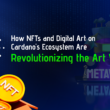A Decentralized Autonomous Organization (DAO) is a system that runs on a blockchain protocol completely and autonomously, according to rules codified through smart contracts. By dispensing with human intervention or centralized coordination, DAOs are often referred to as “trustless” systems.
What Is Paideia
Paideia is a web3-based software DAO management tool, which will enable the distribution of governance tokens, fundraising, treasury management, creation of spending or governance proposals, a forum for stakeholders to discuss all ideas and proposals, and easy deployment of funds to achieve their goals.
According to the developers, the technical goal is that anyone can start a DAO from a set of DAO tools that are secure, open, easy to use, cheap and can be used in any environment, to distribute tokens using various methods, create proposals and collect votes, helping to share funds safely and fairly.
All development will be open source and anyone can contribute to the codebase.
Paideia is being built on the Ergo and Cardano blockchains, due to their eUTXO structure, which they believe has several advantages over EVM-based smart contracts.
The team says that smart contracts will be reviewed by independent third parties to ensure that they conform to best practices. Additionally, smart contracts will undergo extensive testing to ensure funds are secure and vote counts are fair, transparent, and tamper-evident.
Creation Of DAOs
The creation of a DAO must address issues such as the governance structure, the voting system and tokenomics, among others.
DAOs can encounter scalability and resiliency issues, and there are different approaches to solving these issues.
Scalability refers to the number of members participating to make decisions.
By demanding too much attention from a large number of DAO members the system becomes inefficient, causing less effectiveness in decision making as they grow up. The governance structure must be appropriate as a DAO grows in number of members and scope.
But by requiring very few members to endorse decisions, there is a high probability that those decisions will not align well with majority opinion. This is resilience.
To try to find the balance between these trade-offs, Paideia will offer various governance structures.
When Paideia launches, the two options will be Quorum Voting or a model of Optimistic Governance.
Optimistic Governance is a system where only people on its whitelist can create proposals, and all proposals will be approved by default unless challenged by token holders. If a proposal is challenged, a vote will be available to all DAO members to determine whether or not the proposal is approved.
The default voting system will be voting by Token-based Quorum. A quorum means that a minimum number of available votes is required to pass. Once the quorum threshold is reached, the decision with the most votes wins. The default and typical voting mechanism will be Single Choice Voting, where the voters assign all of their voting power to an option.
Lowering the quorum percentage to increase scalability requires fewer voters to approve proposals. In this situation, resilience is reduced, making it all too easy to push malicious or simply ill-conceived proposals.
Paideia will have balanced defaults, but DAOs can adjust them via post-launch proposals, if they find their configuration doesn’t work well.
The Quadratic Voting system, which may be chosen at the beginning of the DAO’s creation or later through a proposal. It uses a calculation to limit voting power, where each voter has a certain voting power as a “credit” of his or her shares, and is calculated as the square root of the “credits” assigned to each election.
This model protects minorities, respecting the “skin in game” criteria and helping to balance power against whales, better distributing community sentiment compared to token-based voting.
You can read more about this system in an article that I leave at the end (2).
The creators of the DAOs will design the tokenomics on the platform, and then they will be able to choose to launch the tokens in various ways:
Direct Sale (FCFS)
This mechanism uses a registration form where users agree to contribute to the project in exchange for tokens. Once approved, a contribution form will be available and users will be able to send specific cryptocurrencies in exchange for issued tokens. The DAO can determine the vesting period and other parameters.
Interactive Token Offerings
This auction method will allow users to set a minimum and maximum market limit for which they are willing to buy tokens. Using an algorithm, the price will be determined once equilibrium is reached, and those who bid the highest will have the first opportunity to acquire tokens at the determined value.
Airdrops
A DAO can provide tokens to any number of users via airdrops. The list can be added manually or a simple ‘.csv’ file can be uploaded.
Refundable ICO
This method, Initial Coin Offering, will give DAOs the option to allow refunds to their contributors. There may be different parameters such as time frame, milestones, etc. to set the refunds. An example would be a DAO that is formed to develop some software, and a roadmap is established for the deliverables with periodic milestones, paying with the corresponding funds for each milestone. If a token holder believes that the DAO is not meeting its obligations, they will have the option to refund the remainder of their tokens for the initial purchase price at the initial listing.
Paideia Governance
Paideia will take the form of Optimistic DAO governance, which will initially be managed by the development team.
This form of governance, the creators say, will allow the DAO to grow with agility, giving trusted executives the ability to act with focus, and not get bogged down by an unnecessary voting process for every decision. Executives will still be prevented from making selfish or unfair decisions, as stakeholders will always have the opportunity to challenge their proposals and force a vote.
As the project evolves, the Paideia DAO will transition to a fully autonomous entity, and any remaining management roles will be filled by qualified individuals selected by the DAO.
Decisions will be made by DAO votes, to maintain decentralized governance of the project. Token holders will be able to challenge proposals within the established time frame and, in the event of a challenge, all token holders will be able to vote to determine whether the proposal passes or fails.
The Tokenomics
This project will have a token for the IDO (Initial DEX Offering).
The generation of a DAO and the use of the functions, will have an associated fee shared with the DAO of Paideia and the creators of Paideia tokens.
There will be a maximum supply of 200 million Paideia tokens distributed as follows:

The Roadmap
The post on its website shows the following work schedule:
Q1 2022
- Begin UX development, producing prototypes to show the community ✅Completed
- Complete the white paper ✅ Completed
- Create social media accounts, and begin community outreach ✅Completed
- Fund-raise rounds ✅ Completed
- Begin work on smart contracts and project back-end code ✅ Completed
- Front-end Design: Work on front-end designs with the UX team and graphic designer for a Figma prototype ✅ Completed
Q2 2022
- TGE and IDO ✅ Completed
- Staking V1 ✅ Completed
- Front-end Code: complete the code for the front-end for both the dApp and website
Q3 2022
- Front-end and back-end consolidation: teams will collaborate to create the necessary API endpoints and get the front-end functioning
- Alpha Test: Begin testing how the platform works. Test user flows. If smart contracts are ready, use test tokens to try them out.
Q4 2022
- Public MVP Release Once tests and code audit are complete, launch the MVP of the platform
- Extra Features: Developers can now start working on additional features outlined in the whitepaper, including new governance structures
- Token Issuance Development: At MVP, token issuance is only airdrops. Begin adding functions to allow seed funds, adding liquidity to the dex, and other distribution methods.
2023 & beyond
- Cross-chain functionality: Implement cross-chain functionality between Ergo, Ada, and other UTXO blockchains, to allow DAOs to hold multi-asset treasuries.
- Stand-alone tools: Build software that users can run on their local machines so they can easily interact with DAOs without requiring the Paideia website to be live.
- Community Outreach: Potentially utilize funds where possible and explore outreach programs in areas that will benefit most from crypto governance solutions
- Charitable Foundation: Establish a not-for-profit foundation that can educate and empower people in developing nations using the Paideia toolset
The Team
Its founder and CEO Marty C. and its CTO Leif Erickson, lead a team of 8 members that you can meet here.
Website: https://www.paideia.im/
. . .
(1) Decentralized Autonomous Organization (DAO): The Brief History, Challenges, and Lessons Learned










